
Rural Extension and Innovation Systems Journal
Scope & Guideline
Empowering Rural Communities through Innovation.
Introduction
Aims and Scopes
- Participatory Action Research (PAR):
The journal emphasizes the importance of participatory action research, engaging stakeholders in the research process to foster collaboration and ensure that the findings are relevant and practical for the communities involved. - Technology Integration in Agricultural Extension:
The journal explores the role of technology in agricultural extension, including digital tools and platforms that facilitate knowledge exchange and improve access to information for farmers and service providers. - Capacity Building and Training:
A significant focus is placed on training and capacity building for rural communities and extension workers, ensuring they have the skills and knowledge necessary to implement innovative agricultural practices. - Sustainability and Environmental Practices:
The journal addresses sustainability in agriculture, promoting practices that enhance environmental stewardship and resilience among farming communities. - Community Engagement and Collaboration:
It highlights the importance of community involvement and collaboration in agricultural development, showcasing successful models of engagement that empower local producers.
Trending and Emerging
- Digital Upskilling and E-Extension:
There is a growing emphasis on digital skills and e-extension services, reflecting the need for farmers and extension workers to adapt to new technologies and online platforms for knowledge sharing. - Mental Health and Wellbeing in Agriculture:
The journal is increasingly addressing mental health issues within the agricultural community, highlighting the importance of support systems and interventions for rural populations. - Climate Change Adaptation Strategies:
Research focusing on strategies for adapting to climate change is on the rise, emphasizing the need for sustainable practices and resilience-building among farmers in the face of environmental challenges. - Farmer-Led Innovation:
There is a trending focus on farmer-led innovation, where farmers take an active role in developing and implementing new practices, reflecting a shift towards grassroots solutions in agricultural extension. - Collaboration and Networking among Stakeholders:
Emerging themes include the importance of collaboration among various stakeholders in the agricultural sector, such as farmers, researchers, and policymakers, to enhance the effectiveness of extension services.
Declining or Waning
- Traditional Agricultural Practices:
There is a noticeable decline in publications focused solely on traditional agricultural practices, as the journal shifts towards more innovative and technology-driven approaches to extension. - Top-Down Extension Models:
Research on top-down extension models is waning, indicating a movement towards more participatory and inclusive approaches that prioritize the input and needs of farmers and communities. - Single-Discipline Focus:
The journal is moving away from articles that focus solely on one discipline, such as agronomy or animal husbandry, in favor of interdisciplinary studies that incorporate various aspects of rural development.
Similar Journals
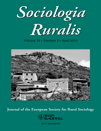
SOCIOLOGIA RURALIS
Charting New Territories in Rural StudiesSOCIOLOGIA RURALIS, published by Wiley, stands as a leading academic journal in the field of sociology and political science, boasting an impressive Q1 classification in the 2023 category quartiles. With an ISSN of 0038-0199 and E-ISSN 1467-9523, this journal has been a cornerstone of rural sociological research since its inception in 1960. SOCIOLOGIA RURALIS aims to explore the complexities of rural communities, the dynamics of rural-urban interactions, and the sociopolitical structures that influence rural life. Its esteemed standing is reflected in its Scopus rank of 77 out of 1466, placing it in the 94th percentile of social sciences journals. Although currently not an open-access publication, the journal provides critical insights that significantly advance the understanding of rural issues, making it an essential resource for researchers, practitioners, and students dedicated to the field.

Journal of Agricultural Education & Extension
Advancing agricultural education for a sustainable future.The Journal of Agricultural Education & Extension, published by Routledge Journals, Taylor & Francis Ltd, is a distinguished peer-reviewed journal that occupies a vital niche at the intersection of agricultural sciences and education. With an impressive impact factor underscoring its reputation - categorized as Q1 in Agricultural and Biological Sciences and Geography, Planning and Development, and Q2 in Education for 2023 - this journal attracts a diverse readership keen on advancing knowledge in agricultural education, extension practices, and sustainable development. The journal's rigorous articles, spanning from 2010 to 2024, not only address contemporary challenges in agriculture but also promote innovative teaching methodologies and research strategies. Researchers, professionals, and students alike benefit from its insightful contributions, making it an essential resource for those dedicated to enhancing agricultural education and fostering community engagement in the UK and beyond. Access options to the journal are available through institutional subscriptions, ensuring widespread reach and impact in the academic community.

Revista Brasileira de Educacao do Campo-Brazilian Journal of Rural Education
Transforming rural education with interdisciplinary insights.Revista Brasileira de Educação do Campo - Brazilian Journal of Rural Education, published by Universidade Federal de Tocantins (UFT) since 2016, is a distinguished open access journal aimed at advancing research and scholarship in the field of rural education. With its commitment to enhancing educational practices and policies in rural settings, this journal serves as a vital platform for researchers, educators, and policymakers to share their findings and innovations. By embracing a diverse range of interdisciplinary perspectives, the journal seeks to address the unique challenges and opportunities faced by rural educators in Brazil and beyond. The journal's dedication to open access ensures that the knowledge produced is widely disseminated, fostering a rich dialogue within the educational community. As the field of education continues to evolve, Revista Brasileira de Educação do Campo stands at the forefront, championing the importance of equitable and inclusive education for all learners.
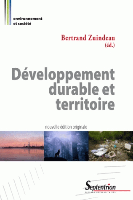
Developpement Durable & Territoires
Shaping Sustainable Practices through Open DiscourseDéveloppement Durable & Territoires is a premier open-access journal dedicated to fostering innovative research and discourse in the fields of sustainable development and territorial studies. Published by the RESEAU DEVELOPPEMENT DURABLE & TERRITOIRES FRAGILES, this journal serves as a vital platform for researchers, practitioners, and policymakers seeking to address the complex challenges posed by environmental sustainability and territorial management. Since its inception in 2002, it has committed to disseminating high-quality research that informs best practices and encourages interdisciplinary collaboration across various sectors. While it currently lacks a quantified impact factor and HIndex, its accessibility ensures a wide reach and engagement with contemporary thought leadership in sustainability. The journal is based in Villeneuve d'Ascq, France, and provides an essential resource for advancing knowledge in sustainable practices and insights into fragile territories.

Journal of Rural and Community Development
Empowering Communities, Enriching Lives.Welcome to the Journal of Rural and Community Development, a distinguished open-access publication from Brandon University, Rural Development Department, dedicated to advancing the understanding of rural and community issues. With an ISSN of 1712-8277, this journal has been at the forefront of disseminating innovative research and practical insights since 2005. Conveniently accessible to a global audience, the journal aims to bridge academic research with real-world applications, addressing challenges and opportunities in rural and community contexts. Researchers, professionals, and students alike will find valuable resources that inspire critical thinking and foster collaboration within the field of rural development. Based in Brandon, Manitoba, Canada, the journal upholds a commitment to scholarly excellence and community engagement, making it an essential platform for anyone invested in the progress and well-being of rural populations.
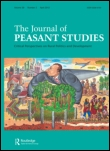
JOURNAL OF PEASANT STUDIES
Illuminating the Complexities of Peasant StudiesJOURNAL OF PEASANT STUDIES, published by ROUTLEDGE JOURNALS, TAYLOR & FRANCIS LTD, stands at the forefront of interdisciplinary research, exploring the dynamics of rural communities and agrarian movements within the fields of Anthropology, Cultural Studies, and Arts and Humanities. With an impressive ranking in the 2023 quartiles, positioned in the Q1 category across multiple disciplines, this journal serves as a vital platform for scholars seeking to understand the complexities of peasant lives, land use, and social transformations. Hailing from the United Kingdom and established in 1973, it continues to thrive, maintaining rigorous peer review standards and a focused scope that attracts high-impact research. Although it is not an open-access journal, it provides vital insights and fosters critical dialogue among researchers and practitioners alike, assisting them in addressing contemporary social issues and advocating for rural rights and identities. With an enduring commitment to advancing knowledge and scholarship, the journal plays an essential role in shaping academic discourse in its fields.

Economia Agraria y Recursos Naturales
Connecting Scholars to Drive Sustainable Resource ManagementEconomia Agraria y Recursos Naturales, published by UNIV POLITECNICA VALENCIA, EDITORIAL UPV, is a prominent open-access journal that has been serving the fields of agricultural and biological sciences, environmental science, and geography since 2001. With an ISSN of 1578-0732 and an E-ISSN of 2174-7350, this journal is dedicated to publishing high-quality research that contributes to the sustainable management of natural resources and agricultural practices. The journal invites scholars, practitioners, and students to explore and share innovative findings that address pressing environmental challenges. While currently categorized in the lower quartiles (Q4) for various disciplines in 2023, its open-access model ensures wide dissemination and visibility for authors and their work, aligning with the growing trend towards accessibility in academic publishing. Positioned in Spain, Economia Agraria y Recursos Naturales is a valuable resource for those seeking to engage with the intersection of agriculture, environmental studies, and policy planning within a global context.

Review of Agrarian Studies
Illuminating pathways to sustainable agricultural practices.Review of Agrarian Studies is an esteemed academic journal published by Foundation Agrarian Studies, dedicated to advancing the field of agrarian studies and related social sciences. With its dedicated ISSN 2249-4405 and E-ISSN 2248-9002, the journal strives to provide a platform for innovative research and critical discourse on agrarian issues, rural development, and sustainable agricultural practices. With the growing interest in food security, environmental sustainability, and rural economics, the Review of Agrarian Studies plays a vital role in bridging theoretical frameworks and practical applications, making it indispensable for researchers, professionals, and students alike. Although this journal currently operates without an open access model, its commitment to dissemination of knowledge ensures that scholarly contributions are accessible to a wide audience of academia and policy-making communities. The journal is positioned to make significant contributions to the ongoing dialogues and challenges in agrarian research, fostering a collaborative approach to tackling global agricultural concerns.
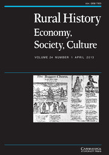
Rural History-Economy Society Culture
Illuminating the Intersections of Economy, Society, and Rural Heritage.Rural History: Economy Society Culture is a vital academic journal dedicated to exploring the multifaceted aspects of rural history from economic, societal, and cultural perspectives. Published by Cambridge University Press, this journal contributes substantially to the field by presenting innovative research that spans a range of disciplines, including history, geography, and urban studies. With a convergence of scholarship from 1990 through 2024, this journal holds significant rankings in the top quartiles of its categories, particularly excelling in History where it ranks in the Q2 quartile. It also demonstrates respectable positions in other arts and humanities domains, reflecting its considerable impact, especially in history-related studies, where it sits in the 76th percentile. While not open access, it provides valuable insights for researchers, professionals, and students passionate about understanding the dynamics of rural societies and their historical underpinnings. For scholars aiming to contribute to this rich dialogue, Rural History serves as an essential platform for disseminating significant findings and advancing knowledge in the field.
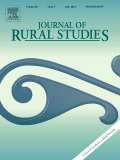
Journal of Rural Studies
Unveiling Insights into Rural ChallengesWelcome to the Journal of Rural Studies, a premier peer-reviewed publication dedicated to advancing the field of rural research. Published by PERGAMON-ELSEVIER SCIENCE LTD, this esteemed journal has been a cornerstone of scholarly discourse since its inception in 1985 and continues to evolve through 2024. With an impressive impact factor and categorization in the Q1 tier across various fields, including Development, Forestry, Geography, Planning and Development, and Sociology and Political Science, the journal is among the elite voices in rural studies. Researchers, professionals, and students alike will find invaluable insights within its pages, supported by rigorous empirical research and theoretical explorations that address the complexities of rural life and its myriad challenges. While it currently does not offer open access, the subscription model ensures a broad dissemination of knowledge, fostering collaboration and innovation within the academic community. With a robust Scopus ranking that places it in the top percentiles across multiple social sciences, the Journal of Rural Studies remains an essential resource for those dedicated to understanding and improving rural environments worldwide.